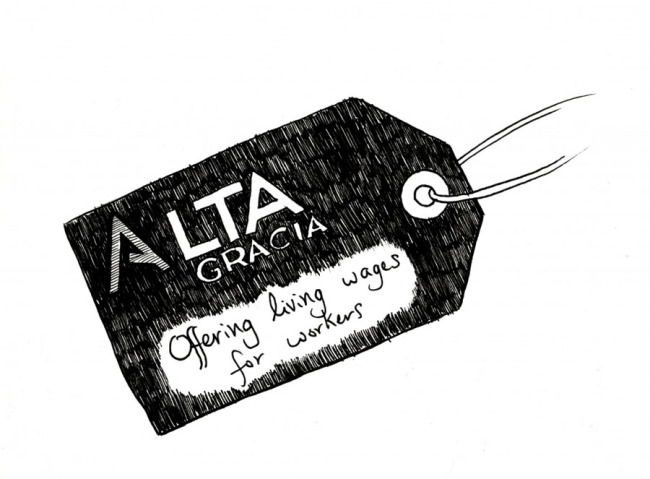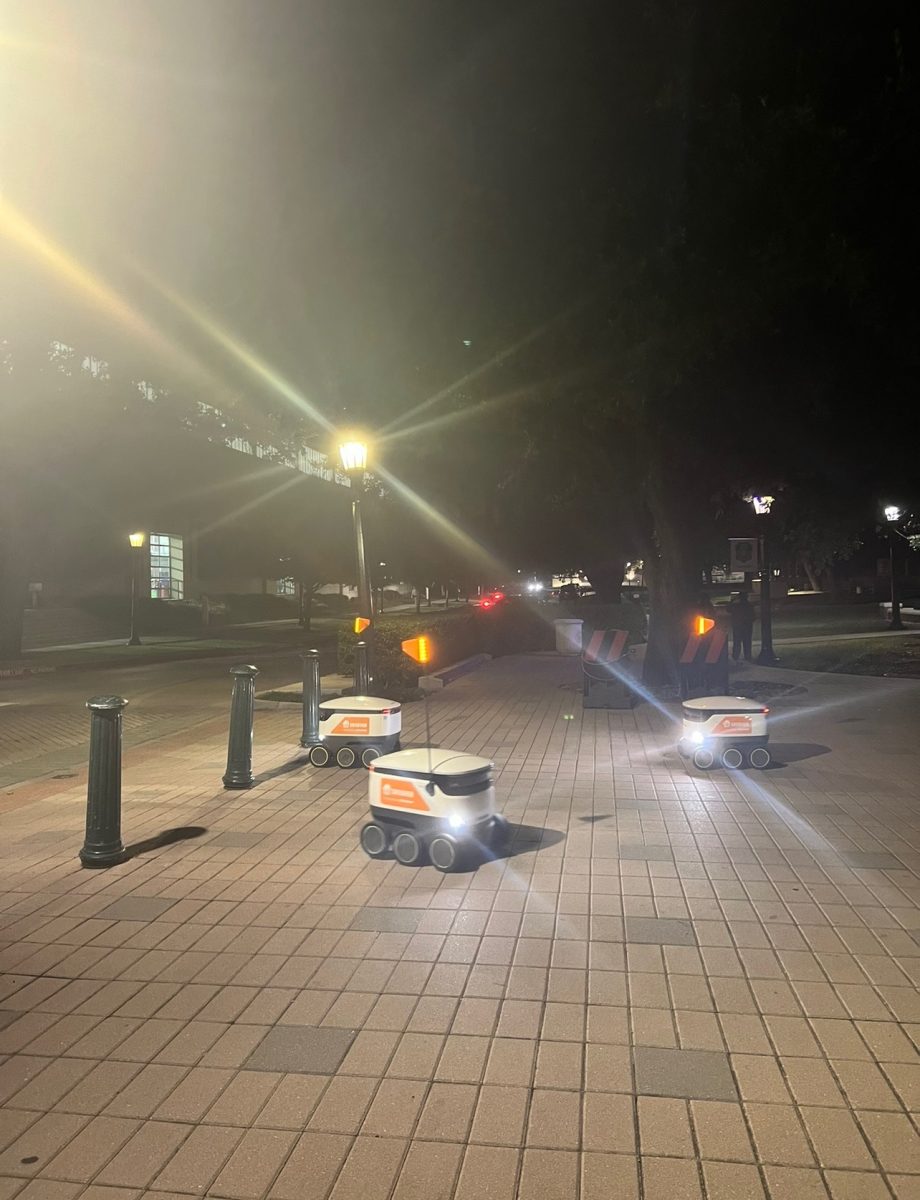By Samantha Butz
Alta Gracia has become the first garment factory to offer living wage salaries to workers, focusing on student motivation as the key to their business success.
Above the clutter of racks of clothing, only a few name brand companies’ signs are noticeable: Nike, Champion, Under Armour, an occasional Polo Ralph Lauren. In between the white swooshes and C’s is a sea of fliers promoting the SMU spirit during the holiday season. The latest pop song plays in the background, correspondently raising the voices of shoppers as they shift through the latest SMU apparel.
The top-selling manufacturer in college apparel, Knights Apparel, has no signs in SMU’s bookstore. Alta Gracia, a garment factory that manufactures Knights Apparel under the Alta Gracia name, has only a small assortment of products towards the back of the SMU bookstore.
But Alta Gracia is not like any other garment factory in the world.
Alta Gracia is the first living-wage, union-made apparel company, offering workers several benefits that other sweatshops around the world disregard. The basis of their business model has been driven by student awareness.
“People pay a premium for organic, so people will pay a premium for social justice,” Community Education Coordinator for Alta Gracia Rachel Taber said. “We don’t charge more for our product. We just make it obvious that we are socially responsible.”
In fact, Alta Gracia offers the cheapest basic T-shirt in the SMU bookstore, at $14.99, yet is shuffled in with other products. Other than the different product designs, there is nothing that makes the Alta Gracia brand stand out among the other brands in the store.
“It sells no matter where it is,” general merchandising manager Deirdre Williams said. “But then again we don’t have students coming in asking for Alta Gracia.”
An occasional Facebook post on the SMU Bookstore’s page and a small sign on the company’s rack of clothes is generally all the advertising that Alta Gracia receives, according to Williams. However, that one small sign is replaced during the holidays to encourage the latest bookstore promotion.
“It’s a good cause, but it isn’t a deal breaker with SMU students,” Williams said. “It seems like it needs to be a well-known brand in order to make any impact.”
But Knights Apparel is the leading college apparel company in the world. Alta Gracia as their own company made approximately $11 million in retail sales in 2013, and is projected to make another $16 million by the end of this year, according to a new report from researchers at Georgetown University.
Created in 2010, many factory owners predicted the unique factory of Alta Gracia would last only three months.
“The formation of Alta Gracia was really unprecedented,” community education coordinator for Alta Gracia Rachel Taber said. “It was created through the combined efforts of a student group, union, and company.”
To raise awareness, Alta Gracia factory employees work with Solidarity Ignite, a non-profit that works with groups around the nation to hold large corporations accountable to uphold human rights, and the United Students Against Sweatshops, a national group of students promoting workers’ rights, to tour college campus’ around the United States.
On campus’ such as Duke and the University of Maryland, students have created campaigns, fliers, and petitions to raise awareness of Alta Gracia and involvement of the university in the company.
“The public has been overwhelmingly supportive,” Taber said. “People are hungry for these kinds of things.”
But, other than a brief lecture on Sept 30 put together with the help of the small campus organization of College Democrats and Solidarity Ignite, SMU’s involvement in Alta Gracia has been minimal.
“The event was meant to try to spark an effort on campus by showing there can be jobs with dignity in developing countries,” president of College Democrats Michael Wilburn said. “But it is hard to coordinate everything.”
After being contacted by Alta Gracia, Wilburn was able to reserve a room in Hughes Trigg for the lecture and raise awareness of the event. Wilburn, however, did not attend.
Sold at more than 800 college campuses across the U.S., simply selling a portion of the clothes in bookstores does little to help the expansion of the company and motivate other factories to follow. Student drive and campus initiative is key to propel the success of what workers describe as “the difference between earth and heaven.”














